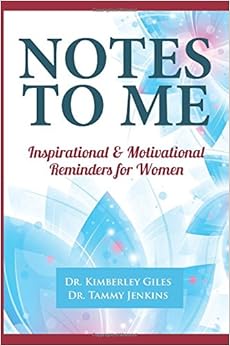
A few of my favorite inspirational and motivational reminders were
Day 4 - Love Yourself - A reminder that self-love is about remembering to be tender and kind to ourselves and remembering to take care of our minds, bodies and spirits daily!
Day 15 - Hey Gorgeous, Yes You - Just know it doesn't matter how tall, short, thin, or fat you are - Gorgeous is a state of mind and all about how you feel about yourself...We are all gorgeous in our own way. Take the time today to embrace it!
Day 16 - Joy - You deserve joy not just every now and then but each and every day. Go get your Joy!!
But back to my One Word for 2016
At the conclusion of Notes to Me - the authors share:
"Imagine being able to challenge yourself daily, gentle challenges like the little pushes in the right direction that one needs to act and make some positive changes to your life. Imagine being able to feel confident and able to say "No" to some of the many demands that are placed upon you, without the need to make up an elaborate excuse."
So here it is - my One Word for 2016
For 2016, I will not only IMAGINE a life filled with joy, balance, purpose, gratitude, peace, confidence, focus, and love - I will remind myself each day that I deserve it, set goals to achieve it, and forgive myself on days that I fall short.
...and I will keep Notes to Me, close by as a constant source of inspiration when needed!
